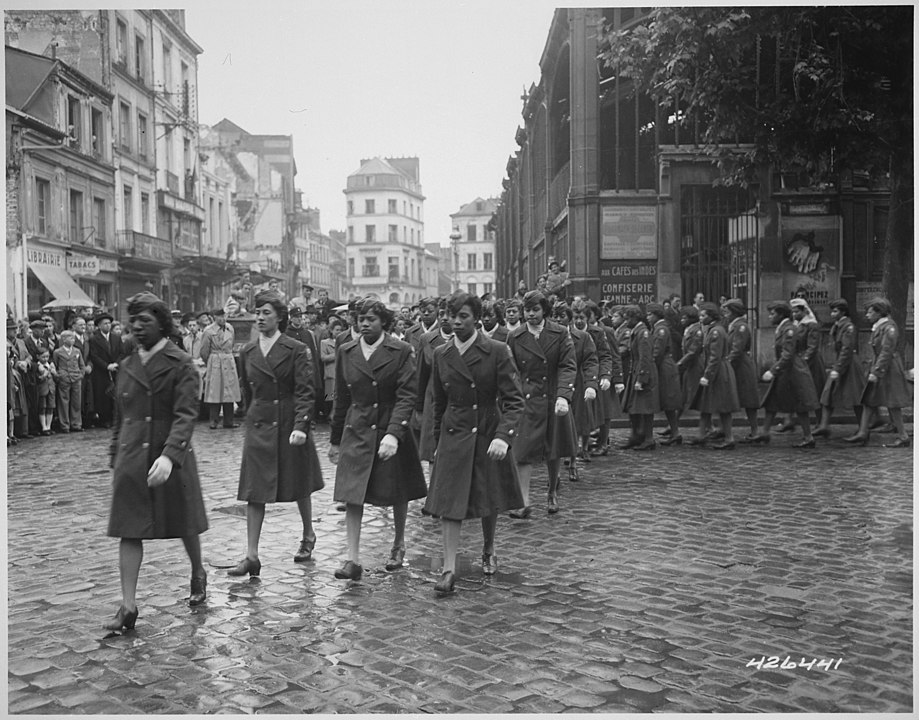Today in 1945, part of an American Army battalion started an 11 day trip to Birmingham, England.
It was the 6888th Central Postal Directory Battalion.
The battalion that would be known as the Six Triple Eight had 855 servicemembers, all Black women.
And it took on – and accomplished – a mission that may not have been glamorous but was considered absolutely essential to the war effort.
Maybe their motto put it best: “No mail, low morale.”
American personnel were engaged in heavy fighting across much of Europe, and their families back home were trying to get in touch with them.
But those letters and packages had been piling up.
There were tens of millions of them in hangars.
Sorting them would take work, and so would getting them to the intended recipients.
Not only were there plenty of soldiers who had the same names, there were also lots of letters who were just addressed with a servicemember’s first name, care of the U.S. Army.
The top brass believed that clearing the backlogs of mail and getting those messages from loved ones to soldiers would have a big effect on morale for those doing the fighting.
Meanwhile, First Lady Eleanor Roosevelt and civil rights groups had been pushing for allowing women of color into the new Women’s Army Corps, and pushing to let them serve overseas.
The military figured sending the Six Triple Eight might address both issues at once.
Major Charity Adams, the Corps’ first Black commissioned officer, organized the battalion into three shifts.
They worked around the clock, seven days a week, to get the mail moving, working in cold, dark makeshift spaces.
As they did, they started to build what the New York Times called a “collective determination” around the mission and around each other, even if other parts of the military didn’t appreciate them or their work.
Once a general threatened to bring a white lieutenant to take over the unit, to which Major Adams replied, “Over my dead body, sir.”
She stayed on.
And so did the Six Triple Eight.
They would also serve in France before returning to the U.S. in 1946.
And they cleared that backlog.
Mission accomplished.
Here’s the story of a trip that didn’t go quite so well.
Today in 1947 TIME Magazine had a short story about an announcer for the BBC who went with his engineer to a group of islands off the southwest coast of Great Britain.
They were planning to do a three minute broadcast near Bishop Rock Lighthouse, but thanks to high winds they had to stay for 27 days.
Hope they packed extra sandwiches.
The Black Female Battalion That Stood Up to a White Male Army (New York Times)
6888th Central Postal Directory Battalion (U.S. Army Center of Military History)
Miscellany, Feb. 3, 1947 (TIME)
Our show is powered by our listener-backers on Patreon!
Photo via Wikicommons

